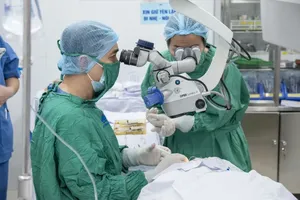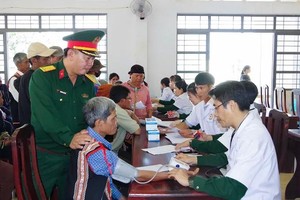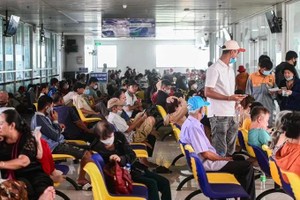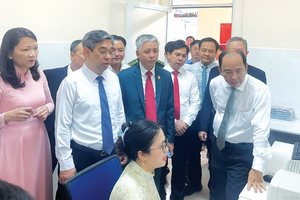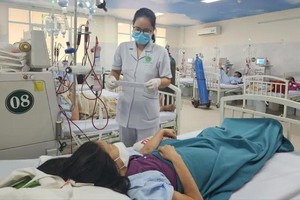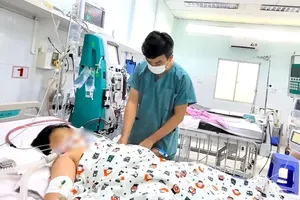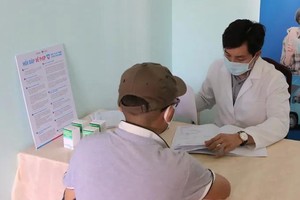The Vietnamese are shunning poorly equipped and overcrowded hospitals in Vietnam to travel to nearby countries such as Singapore, Thailand and the Republic of Korea – despite the huge cost involved.
Deputy Health Minister Nguyen Thi Kim Tien recently said that on average, Vietnamese spend US$1 billion a year to be treated in Singapore alone. Tien said people were opting to receive medical attention abroad not just because facilities were better, but because the service was far superior to that available in Vietnam.
Their hospitals were well marketed and the service was excellent, she said. Medical staff actually looked like they cared for their patients, unlike here, Tien said.
Nguyen Xuan Duong, 65, who lives in Hanoi's Dong Da District, said that when he first went to a hospital in Singapore, he thought that he was staying in a palace.
"The hospital's foyer was enormous. There were numerous luxurious sofas and ornamental trees and the fragrance of freshly ground coffee was everywhere," he said. Rooms cost VND30-80 million (US$1,500-4,000) a night. For patients who opted not to share, they had their own doctor, Duong said.
"The quality of health care was good but not particularly exceptional. What stood out for me was that the doctors always smiled and were thoughtful when consulting with patients," he said.
Most Vietnamese travelling to Singapore are suffering from serious ailments, such as cancer. But others require only simply surgery that could easily be carried out back home.
"Four years ago, my grandson went to Singapore to have a circumcision. It cost 10 times more than it would have cost in Vietnam, but we wanted to ensure he got the best treatment," Duong said.
A smile and a gentle demeanor count for a great deal when you were worried, he added.
Meanwhile, Nghiem Van Vuong, deputy head of Thang Long Hospital's Medical Check-up Ward, said domestic public hospitals were often overcrowded, while doctors had to give health checks to at least 100 patients and treat at least 10 people a day.
"Doctors have too much work and are under too much pressure. How can they smile?" he said. Vuong added that it was a doctor's job to examine and treat a patient, not to be a marketing professional.
Former patients however also complain that facilities are also inferior in Vietnam. Vu Phuong Hanh, from Hanoi's Ba Dinh District, said that when she gave birth to her first baby two years ago in National Hospital for Obstetrics and Gynaecology, she was prepared to pay for her own room with an en suite bathroom.
"However, the hospital was too crowded and did not have enough room for us. In the end I ended up sharing a single bed with another woman and her baby," Hanh said. She said the room was also too hot and that her baby cried incessantly.
However, Hanh was luckier than most mothers who were forced to sleep on temporary folding beds in a hospital corridor even if they could afford the VND 500,000 (US$25) for a night in a good room.
"It was one of my worst experiences and I was determined to go to Singapore to have my second child despite the cost," she said.
To encourage more Vietnamese to seek medical attention at home, new state-of-the-art hospitals are being built here. Last year, work began on Hue Central Hospital – an international standard medical centre. It is scheduled for completion next year.
The hospital will be heavily marketed to Vietnamese. People coming to the hospital will not be patients, but customers. They will get the best and most attentive service, said Nguyen Duy Thanh, the hospital's deputy head.
Last February work began on a hospital in Hanoi which will occupy a 24.6 square-meter site. It has been likened to a five-star hotel. In May, work also began on the Hanoi Welfare Hospital in the capital's Tu Liem District.
The new international-standard hospitals being built in the country will hopefully encourage Vietnamese to trust once again in the standard of health care being offered here. Only time will tell.




